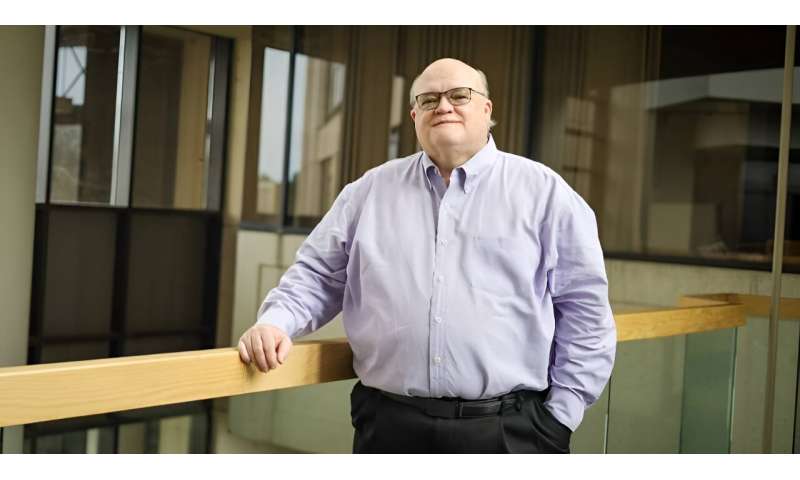Researcher works to overcome major hurdles in cancer research and rare diseases

Neurofibromatosis type 1, a genetic condition that causes tumors to grow along nerves, occurs in 1 in 3,000 to 4,000 people worldwide. Although the tumors are usually benign, they can cause blindness, deafness, disfigurement, bone abnormalities, learning disabilities, and disabling pain. Neurofibromatosis 1, more commonly called NF1, is also associated with an increased risk of other tumors including leukemia, glioblastoma, and breast cancer.
There is no cure for NF1, and until very recently, there were no specific therapies beyond treating the individual symptoms with chemotherapy and radiation; bracing or surgery; and pain medications and alternative therapies.
Dr. Robert (Bob) Kesterson is Professor of Cancer Precision Medicine and Director of the Genetically Engineered Models, or GEMS, core facility at Pennington Biomedical. Families from all over the world with children diagnosed with NF1 reach out to him in hopes of developing the best therapy for treating their child's specific genetic mutation.
"NF1 is caused by multiple mutations in the NF1 gene. When I first began studying NF1, there were no treatments. Today, there is a drug called a MEK inhibitor that reduces symptoms in patients, but it doesn't work for all patients so we need to work to develop additional therapeutics," Dr. Kesterson said. "One issue with NF1 is that the gene is very large and there are so many different mutations, with over 7,000 mutations already known."
NF1 animal models help uncover the underlying process of the disease, which can lead to new treatments, and often extremely individualized treatments, to better manage the disease in a patient.
Dr. Kesterson's lab is currently examining molecular mechanisms associated with the NF1 gene since it is a tumor suppressor gene associated with many types of cancers. He specializes in creating personalized animal models that mimic a patient's specific genetic mutations, which hold the promise of uniquely tailoring therapies to either correct a particular mutation at the DNA level or provide the missing protein back to the tumor cells growing abnormally.
Dr. Kesterson estimates that he has created between 300 and 500 animal models for unique diseases within the last 20 years. His work extends beyond NF1. He has created mouse models for patients with diseases such as cystic fibrosis, polycystic kidney disease, diabetes, cardiovascular disease, blindness, and many types of cancer. He said technological advances in the last six years have made it much easier to provide true precision medicine and have opened up the rapid development of animals beyond just mice.
"Genetically engineered models represent one of the best ways we can help individuals with a unique disease because we can look at the specific mechanisms. We can identify the specific gene and then identify what about that gene is leading to the disease. Where is the protein? Where is the mutation? What bonds can be disrupted? Some genes have been studied clinically for a very long time, but patients have different phenotypes," he said. "This process used to take a long time using mouse stem cells. With the development of CRISPR technology, it is much easier and quicker to make changes in the genome."
Dr. Kesterson believes his work will ultimately lead to the ability to restore partial function of the gene associated with NF1, thereby reducing the growth of tumors and other symptoms of the disease.
Provided by Pennington Biomedical Research Center